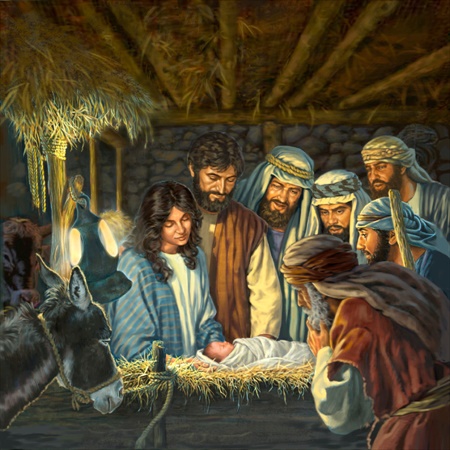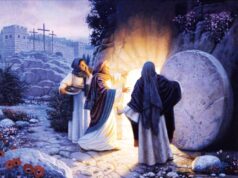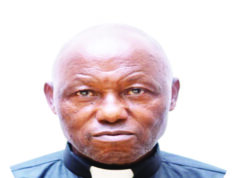By Pr Ben Odongo
The biblical Christmas story that is always narrated, the one that announces the birth of Jesus, usually talks little about politics of the time.
The oldest existing texts to record the birth of Jesus go out of their way to locate Him in His political setting.
Moreover, they portray Him as a threat to that empire. How could one birth in a remote corner of the mighty Roman Empire have such political impact?
By any common standard, the baby was politically unimportant. He hailed from a minority group in a global empire.
When the author of Luke’s Gospel announces the birth of Jesus, describing Him as the one who brings peace and calls Him “son of God”, now these are fighting words in an ancient context.
Luke, the author of the Gospel that bears his name, does not stop there. He records Jesus’ mother, Mary, being told her son would inherit the “throne of His ancestor David” and “reign over the house of Jacob forever” (Luke 1:33-34).
These are references to Jerusalem and Jewish self-rule over their traditional lands. It is a pointed promise given that Mary is living in occupied territory; land that Rome had conquered and colonised.
So for Jesus to sit on David’s throne requires the emperor to vacate it. Jesus never threatened war, but subversion by force of ideas can be as dangerous as insurrection by violence.
It is perhaps no surprise that the imperially appointed King Herod, tried to kill Him while still an infant and the Romans killed Him when a grown man.

A threat to King Herod
That Jesus, a child from an ordinary Jewish family in non-urban, occupied Judea, could be a threat to an emperor should be a laughable hyperbole.
Strangely, it is not presented as such in the Gospels. When the Wise Men from the East arrived in Jerusalem, inquiring about where they could find the recently born “King of the Jews” so that they could worship Him, Herod the Great quickly became ‘Herod the frightened’.
This important man in his late 60s, a creator and survivor of so much political intrigue, was shaken by the birth of a seemingly unimportant baby. Why? Herod understood the political power of religion.
Faith & politics
Now this aspect of the Christmas story is often what sits most uncomfortably for Christians and non-Christians alike.
I have frequently heard statements like “keep politics out of it”. I have heard colleagues criticised for mentioning things regarding justice for the people in a sermon because it is “too political”. You see, there is an unease when faith and politics combine.
Many times people prefer faith to be private. We like our religion and our politics in two discrete categories, as if that is even possible, as if one’s religion can be divorced from one’s values and life.
Now in the world from which the Bible emerged, the idea that religion and politics could be separated would have been considered ridiculous or even foolish.
Politics was religion and religion political. Both encompassed and informed the values that structured and organised society.
So when a group of Judeans proclaim their king has come and call Him “Son of God”, they are proclaiming their allegiance to someone other than the emperor.
Christians would demand allegiance to Jesus alone was even worse in a religiously pluralistic society, leading others to call them “atheists” for their lack of general religiosity.

Are Christians a threat?
This depends on who you ask and where you live. There are many countries like North Korea, where organised religions such as Christianity continue to be considered a threat to the state.
So the Christmas story as told by Luke and Matthew in the Bible is not a safe, children’s story of domestic happiness.
It is the beginning of a longer narrative of power challenged, justice demanded, love proclaimed, and certain worldly values overturned.
Governance is the process of applying policies, proper implementation and continuous monitoring, typically done through a governing body. A political scientist, David Easton, defines politics as the authoritative allocation of values.
The idea of modern day Christianity is that the Church should simply sit back in the Church building and pray for those in governance, and not engage in politics.
The idea of politics being a game for the wicked, a game that is evil and as such not a place for a believer is common-place among many Christians today.
Christians’ part
Christians need to rise up and get actively involved in politics and governance. I am not suggesting every Christian should run for a political office.
Apart from being politically impossible, it is not demographically possible as most countries are of mixed religions and a good number of non-Christians are also very capable of running for office and doing great exploits.
There are other ways Christians can contribute to governance: holding public office holders accountable, refusing to take a bribe, speaking up against evil, encouraging debates, supporting one another for a house divided against itself cannot stand.
Many Christians around the world remember, acknowledge and practice the love of Christ. But unfortunately we often forget the difficult geopolitical context of His birth.
We forget that the Son of God was also the son of Abraham,that the Messiah came into this world a persecuted refugee.
We forget that although faith is not “political” per se, the practice of it can be. It is inevitably perceived as threatening by authoritarian regimes that do not foster tolerance and respect for deep differences among different identity groups-ethnic, religious or otherwise.
In conclusion, the baby who frightened Herod was not the political Messiah that many expected.
Yet His kingdom has broken into history. Those who want to advance these values today and who seek, more specifically, to prevent the atrocities of modern-days Herods, must understand the political context of persecution.
If we do not, we will be reacting to symptoms instead of addressing root causes.
The writer is a student of Theology at Uganda Christian University.
+++++++++++++++++++++++++++++++++++++++++
Subscribe to our website and be the first to receive great Christian news, health information, pastoral guidance, environment, farming and many others. Also, Like and follow us on Facebook at Good News UG.





















